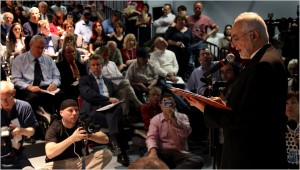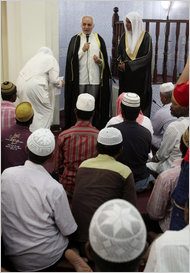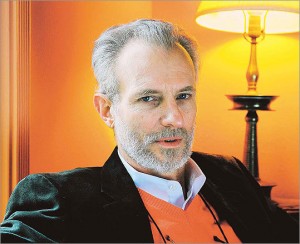Kaplan and COIN: The Tweets
Fred Kaplan graciously took part in a Twitter conversation about his book, The Insurgents. He explained his concerns that the military remains confused about its mission, and expounded on his view that counterinsurgency doctrine is sometimes the right recipe and is not, as I suggested in a question, “snake oil,” or “the best way to fight a kind of war we should never fight.”
The tweets have been gathered here in what to the horror of those who care about grammar, is called a “storify,” v. trans. “to storify.”
New York, Viewed from the Rest of the World
 I’ve spent much of the last week covering the Park51 story from the Arab world. The entire affair has attracted far less attention in the Islamic world than one might expect. We put together a story that canvassed global reaction in today’s Times.
I’ve spent much of the last week covering the Park51 story from the Arab world. The entire affair has attracted far less attention in the Islamic world than one might expect. We put together a story that canvassed global reaction in today’s Times.
If the project’s organizers move the site, or cancel it altogether, I’d expect stronger opinions than we’ve seen so far. Same if there’s a major shift in public opinion, or a spate of violent attacks, or nastier rhetoric than we’ve seen so far.
For more than two decades, Abdelhamid Shaari has been lobbying a succession of governments in Milan for permission to build a mosque for his congregants — any mosque at all, in any location.
For now, he leads Friday Prayer in a stadium normally used for rock concerts. When sites were proposed for mosques in Padua and Bologna, Italy, a few years ago, opponents from the anti-immigrant Northern League paraded pigs around them. The projects were canceled.
In that light, the furor over the precise location of Park51, the proposed Islamic community center in Lower Manhattan, looks to Mr. Shaari like something to aspire to. “At least in America,” Mr. Shaari said, “there’s a debate.”
Across the world, the bruising struggle over an Islamic center near ground zero has elicited some unexpected reactions.
For many in Europe, where much more bitter struggles have taken place over bans on facial veils in France and minarets in Switzerland, America’s fight over Park51 seems small fry, essentially a zoning spat in a culture war.
But others, especially in countries with nothing similar to the constitutional separation of church and state, find it puzzling that there is any controversy at all. In most Muslim nations, the state not only determines where mosques are built, but what the clerics inside can say.
The one constant expressed, regardless of geography, is that even though many in the United States have framed the future of the community center as a pivotal referendum on the core issues of religion, tolerance and free speech, those outside its borders see the debate as a confirmation of their pre-existing feelings about the country, whether good or bad.
The “Ground Zero” Imam
 Imam Feisal Abdul Rauf, leader of the Park51 project (you know, the Islamic community center in Lower Manhattan), kept quiet about the controversy back home during his visit to Bahrain this week. He was on a US State Department trip promoting interfaith dialogue, tolerance, and his long-running project to inject his philosophy of adaptable American Islam into the worldwide Islamic debate. Initially, the State Department tried to shield the imam from publicity, but eventually relented – slightly – by making public one event in each of the three countries Imam Feisal is visiting.
Imam Feisal Abdul Rauf, leader of the Park51 project (you know, the Islamic community center in Lower Manhattan), kept quiet about the controversy back home during his visit to Bahrain this week. He was on a US State Department trip promoting interfaith dialogue, tolerance, and his long-running project to inject his philosophy of adaptable American Islam into the worldwide Islamic debate. Initially, the State Department tried to shield the imam from publicity, but eventually relented – slightly – by making public one event in each of the three countries Imam Feisal is visiting.
In Bahrain, I managed to secure my own invite to the majlis of Sheikh Salah al-Jowder. He’s an oddity, a moderate salafist who sits on an interfaith dialogue committee in Manama (it’s interesting that such a thing even exists). There, Imam Feisal talked a bit about the center, because his hosts had a lot of questions.
The latecomers to Sheik Salah al-Jowder’s majlis, or weekly assembly, wished peace upon their cousins and shook all the men’s hands before sitting down on the deep striped sofas that lined the oblong reception hall.
Imam Feisal Abdul Rauf, leader of the planned Park51 Islamic community center in Lower Manhattan, was sipping Arabic coffee about an hour before midnight Sunday in Muharraq, a crowded neighborhood near the international airport.
On the first stop of his good-will tour, sponsored by the State Department, Mr. Abdul Rauf talked expansively about religious law, the lessons of Islamic history and his mission to build bridges between the West and the Islamic world — any topic, it seemed, but the controversy that lately has made him famous.
About 20 Bahraini men, in flowing white robes and headdresses held in place with braided leather bands, fiddled with their BlackBerrys, drank coffee and fingered beads.
After Mr. Abdul Rauf had spoken, and exchanged pleasantries with his hosts, one of the Jowder cousins raised his voice.
“I know you have the support of President Obama,” he said, almost shouting to be heard over the air-conditioners. “But why don’t we just change the place, to show that Islam is not there to threaten everybody, that Islam is a religion of peace?”
Imam Feisal is in Qatar now, and will visit the United Arab Emirates before returning to the U.S. in early September. He said he will talk to the American media then. For now, he insists, he wants to focus on the Cordoba Initiative’s outreach project.
A lot of his most controversial ideas – at least in the Islamic world – have to do with his belief that Islam takes a different shape in every host culture. American Islam, Imam Feisal argues to his audiences in the Islamic world, has just as much religious legitimacy as Egyptian Islam, or Persian Gulf Islam, or Malaysian Islam, and so on. He makes his argument quietly, but it’s a position that runs squarely counter to the trends in the Arab world toward a more orthodox view of Islam. Imam Feisal believes that Muslims in Egypt can learn from the way American Muslims interpret their faith, and not just vice versa.
For a sense of those ideas and their origin, you can read Anne Barnard’s fabulous profile of Imam Feisal (on which I collaborated from Cairo). She also parses some of the claims about him circulating in the blogosphere.
Islam’s Beginnings
 The first followers of Christ didn’t consider themselves ’’Christians’’; they were Jews who believed that a fellow Jew named Jesus Christ was the long-awaited messiah. It took centuries for Christianity to evolve and solidify as a distinct faith with its own doctrine and institutions.
The first followers of Christ didn’t consider themselves ’’Christians’’; they were Jews who believed that a fellow Jew named Jesus Christ was the long-awaited messiah. It took centuries for Christianity to evolve and solidify as a distinct faith with its own doctrine and institutions.
In ’’Muhammad and the Believers: At the Origins of Islam,’’ University of Chicago historian Fred M. Donner wants to provide a similar back story for Islam — a religion which, in the popular imagination, sprang wholly formed from the seventh-century sands of Arabia. Mohammed preached at the juncture of the Roman and Sassanian empires, winning support from Christians, Jews, Zoroastrians, and various deist polytheists. According to Donner, Mohammed built a movement of devout spiritualists from many faiths who shared a few core beliefs: God was one, the end of the world was near, and the truly religious had to live exemplary lives rather than merely pay lip service to God’s laws. It was only a century after Mohammed founded his ’’community of believers” and launched the great Islamic conquest that his followers started to define their beliefs as a distinct religious faith.
Devout Muslims — who model their lives directly on the mores of the Prophet and his companions — will be surprised to read that Mohammed welcomed Christians and Jews into his monotheistic movement. In fact, Donner suggests, the entire narrative of Islamic conquest misinterprets the ecumenical nature of the early believers. Mohammed, it appears, didn’t require his followers to renounce their religion; early Islam, in this read, was more a revival of existing faiths than a conversion.

